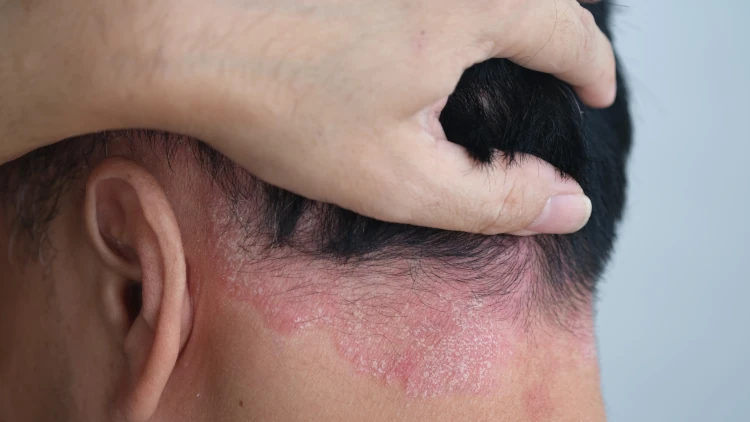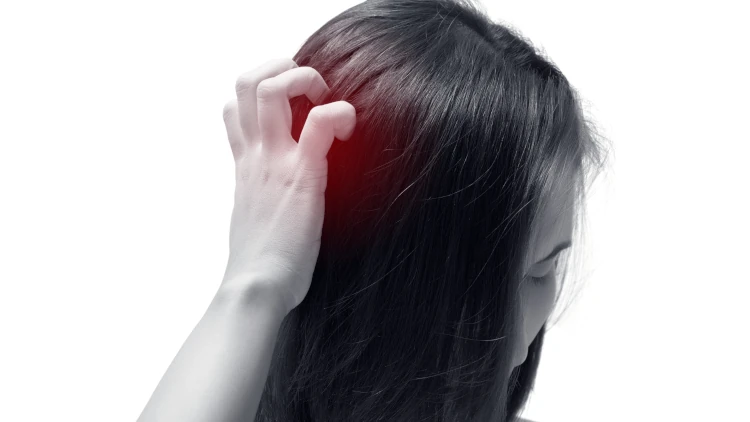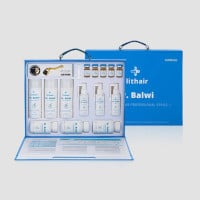
How Scalp Inflammation Contributes to Hair Loss
Scalp inflammation is a common but frequently overlooked contributor to hair loss. While many people attribute thinning to genetics or styling routines, inflammation quietly disrupts the scalp’s ability to support healthy hair growth. And if left untreated, it can lead to consistent shedding or even permanent loss.
Inflammation disrupts multiple functions within the scalp. Inflammation triggers cytokines (IL-1, TNF-α) that can send follicles into premature catagen; some studies hypothesise microvascular changes, but this is unproven. Ultimately, taking action early makes a real difference in preserving both hair and scalp health.
What Is Scalp Inflammation?
Scalp inflammation refers to the immune system reacting to irritation or damage on the scalp’s surface. It typically shows up through visible changes or uncomfortable sensations that suggest something is off with the skin’s barrier or immune behavior.
The most common symptoms of an inflamed scalp include the following:
- Redness: The skin on the scalp may appear red or blotchy, a sign of increased blood flow as the immune system responds. Patches may develop in isolated areas or spread across the entire scalp.
- Itchiness: Persistent itching is an early warning sign. The sensation can fluctuate in intensity and often comes along with dryness or visible flakes.
- Flaking: Dead skin may shed, similar to dandruff. Disruption of the scalp’s barrier or accelerated cell turnover often plays a role here.
- Tenderness: The scalp can feel sore or sensitive. Pain may follow pressure, scratching, or the development of minor lesions.
Scalp inflammation can have many triggers, including chronic skin issues like psoriasis or eczema, allergic reactions to products, accumulation of oils or chemicals, or immune system dysfunction. Pinpointing the underlying cause of these symptoms is the first step toward recovery.
How an Inflamed Scalp Affects Hair Follicles
Inflammation reduces the amount of oxygen and nutrients hair follicles receive. Perifollicular micro-inflammation may impair nutrient diffusion and induce fibrosis, but direct vascular compromise hasn’t been shown in humans. Follicles rely on these supplies to function normally and stay in the growth phase.
Changes in sebum production can also affect the environment around each follicle. When the balance shifts too far in either direction, it disrupts the scalp’s microbial balance and may weaken hair retention.
As inflammation lingers, the hair growth cycle becomes shorter. Hair enters the shedding phase sooner, leading to a decrease in density and an increase in scalp visibility.
Eventually, chronic inflammation can shrink the hair follicles, a process called miniaturization, particularly in androgenetic alopecia, where DHT-driven micro-inflammation accelerates miniaturization. Hair grows in thinner, and if the damage continues, follicles may go dormant or scar over, making regrowth unlikely.
Common Causes of Inflammation-Driven Hair Loss

A variety of everyday scalp conditions can spark inflammation and increase the risk of hair loss. These range from medical issues to hygiene habits.
Below are key causes of inflammation that may contribute to hair loss:
- Seborrheic dermatitis: This condition causes oily, scaly patches. It’s often confused with dandruff but comes with more pronounced irritation and redness.
- Psoriasis: An autoimmune issue that creates thick, silvery scales. The resulting inflammation can interfere with follicle function and can precipitate temporary shedding. Scarring alopecia is rare and usually limited to chronic, untreated hyperkeratotic plaques.
- Fungal infections (like ringworm): Inflammatory tinea capitis (kerion) can scar if treatment is delayed.
- Poor scalp hygiene: When sweat, oil, and product residue build up, the scalp can become irritated and inflamed. Clinical experience suggests prolonged build-up may trigger seborrheic dermatitis and scratching-related shedding; data are limited..
People sometimes confuse normal shedding with pathological hair loss. Losing 50 to 100 hairs a day is expected, but if you’re noticing more than that, and it’s paired with inflammation, that may signal a problem.
Treating and Managing Scalp Inflammation
The first step in treatment is identifying the cause of the inflammation. Medicated shampoos containing ingredients like ketoconazole, salicylic acid, or coal tar often help manage common scalp issues.
You can also use corticosteroid creams or lotions to dial back inflammation under the guidance of a dermatologist. These treatments reduce swelling and redness and are sometimes combined with antifungal or antibacterial therapies, depending on the underlying condition.
Adjustments to your diet may offer extra support. Eating fewer inflammatory foods, boosting omega-3 intake, and avoiding known irritants could all contribute to calming the scalp. Note that small trials of omega-3 and -6 supplements show modest improvements in female pattern shedding; evidence for inflammatory scalp disease is inconsistent.
When To Seek Professional Help for an Inflamed Scalp
If home remedies aren’t working, or you’re noticing your symptoms worsen, it’s time to see a dermatologist. Delaying medical attention can allow damage to progress and make recovery harder.
Visible bald patches or areas of thinning hair may point to scarring or permanent follicle shrinkage. Talk with a professional to confirm what’s happening and outline the next steps.
Transplantation is avoided in any active cicatricial alopecia; disease should be inactive for at least two years before grafting is considered. Once the inflammation is under control, these procedures can help restore lost hair. Reviewing before and after photos can help you set realistic expectations.
Hair transplant costs vary depending on how extensive the hair loss is and what the specific procedure entails. A full quote helps make sure there are no surprises. But even after surgery, inflammation may return if the scalp isn’t properly cared for. Following aftercare guidelines and staying alert for infection symptoms can help maintain results.


